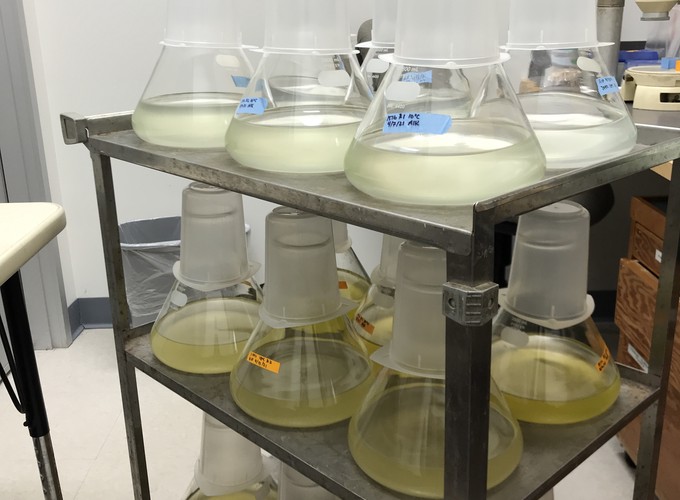Emiliania huxleyi is a globally-distributed coccolithophore with a major influence on beogeochemical cycling via the production of large, ephemeral blooms. Because of its global distribution, Emiliania huxleyi has a wide thermal range and apparently a high capacity for short-term acclimation and long-term adaptation to thermal conditions. We are studying this capacity in the lab via both traditional experimental acclimation approaches in semi-continuous culture, and via tracking gene expression changes in response to thermal conditioning in the taxon via transcriptomics. Through this project, we will address the questions:
- Is the growth rate or the response time to change more vulnerable to thermal conditioning?
- Does Emiliania huxleyi’s capacity to survive in diverse thermal condition increase with exposure time?
- What can we learn from more transcriptomic data under precise thermal experimental conditions? Can we apply this to unpacking global ‘omics datasets?
